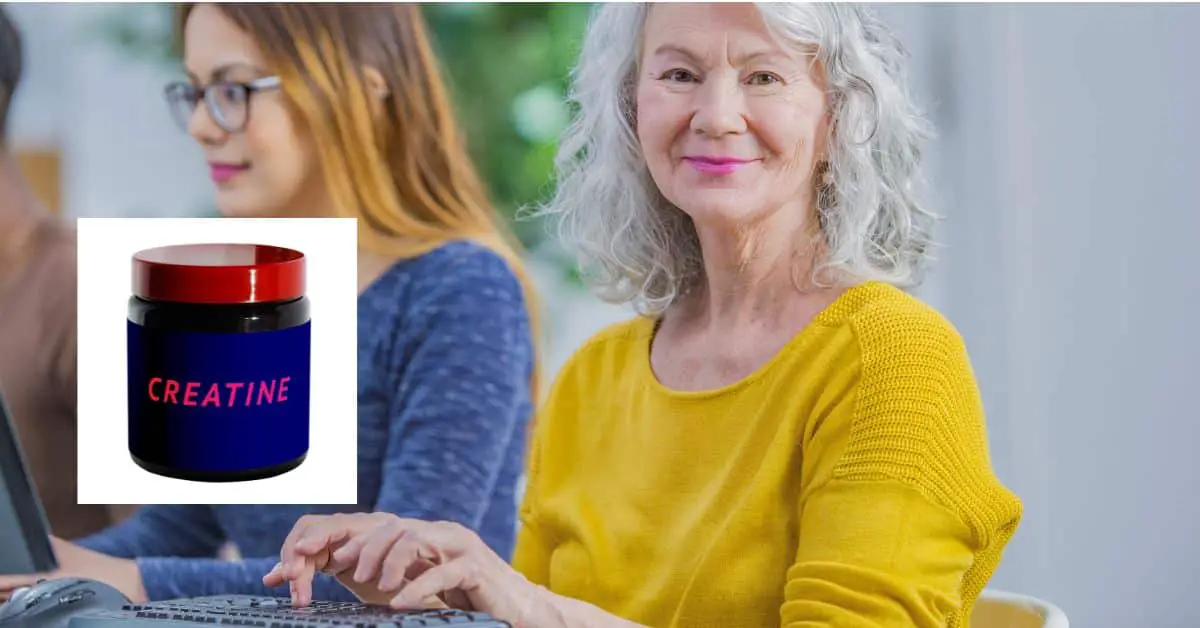Creatine helps you achieve your goals by gaining strength and endurance. This has been a popular supplement for decades now. Creatine occurs throughout the animal kingdom. Creatine helps maintain muscle elasticity and provides energy.
However, many people are now taking creatine without working for the plethora of other health benefits it can provide besides increasing muscle mass.
Should I take creatine without working out?
Absolutely yes! Creatine supplementation can be taken without working and is often recommended for older adults looking to increase body mass, boost fatigue resistance, increases muscle strength, and elevates the performance of activities of daily living.
Be sure to read my recent article, does creatine cause hair loss?
Why do people use creatine supplements?
Studies show that supplements make a huge amount of difference. While you can take creatine in the diet, the effect does not seem to be huge. It’s easier for your body to remove creatine from your urine.

Supplementing increases the creatine storage of muscle cells and the brain, so when the need arises, you can have these items here instead of the baseline quantity.
Usually produced in very small doses the body can use the product as a dietary supplement in very small amounts.
What does creatine do in our bodies?
It is one reason why creatine responses show early weight gain within a couple of days after introducing the creatinine supplements. The higher creatinine you have stored in your cells, the more water will be retained. However, creatine is used to produce quickly ATP and provide instant cellular power in our bodies. Creatine supplementation increases the capacity to maintain strength and muscle mass.
There are well documented benefits of creatine supplementation in young adults, including increased lean body mass, increased strength, and enhanced fatigue resistance are particularly important to older adults.
National Library of Medicine ((https://pubmed.ncbi.nlm.nih.gov/21394604/))
What are the effects of taking creatine?
It would be tougher if we were not strong. Creatine increases the metabolism of nutrients quickly. Creatine is found in our body and fuels our body therefore many people take supplements for training for sluggish movements.
If you can lift more pounds, you can create more muscle fiber tears which your body can then repair and repair larger and stronger after your workouts. MedlinePlus reports creatine has been rated as a possible effective treatment to improve the strength of muscles and overall muscle mass.
How does taking creatine benefit people over 40 who may not engage in gym workouts or intensive exercise?
As we age, our skin has the tendency to get a little saggy. This is especially true for people who are over 60 so creatine fills those muscles up and makes those muscles look bigger. When taking creatine with carbs and water, it can cause cellular volume which makes it appear more muscular and you won’t have sagging skin.
While gaining a great deal of muscle strength can be difficult, creatine has been shown to increase bone mass and protect skeletal muscles which then protect bone strength.
Can you take creatine even if you don’t work out and what are the physiological benefits if you don’t take creatine for intense workouts?
Creatine plays a useful role in daily exercise. Obviously, exercise has another beneficial effect on our health. Even with some exercise, the brain and muscle uptake will increase. Also, you may definitely use creatine even in a workout that doesn’t involve the gym.
Higher brain creatine is associated with improved neuropsychological performance, and recently, creatine supplementation has been shown to increase brain creatine and phosphocreatine. Subsequent studies have demonstrated that cognitive processing, that is either experimentally (following sleep deprivation) or naturally (due to aging) impaired, can be improved with creatine supplementation.” ((https://pubmed.ncbi.nlm.nih.gov/12546637/))
How does creatine help people in fast-paced work environments?
Some studies have shown that creatinine supplementation helps them start their day. This increases the ability to work well and helps improve mental performance. You can take up to 2kg in the morning and say you hit something and take the next one at lunchtime.
What are side effects of taking creatine?
Creatine is one of the most researched and studied supplements on the market. It has been used by athletes for many years to help improve their performance and muscle mass. It is also used by older adults to help improve their muscle mass and strength. However, there are some potential side effects of taking creatine that older adults should be aware of.
One of the most common issues with taking creatine is weight gain. This is because creatine causes your muscles to retain water. This can be a problem for older adults who are already struggling to maintain their weight.
Another potential side effect of taking creatine is cramping. This is because creatine can cause your muscles to work harder than they are used to. This can be a problem for older adults who are not used to working out regularly.
Lastly, taking creatine can cause an upset stomach. This is because creatine can cause your stomach to produce more acid than usual. This can be a problem for older adults who have sensitive stomachs.
Overall, the potential side effects of creatine supplementation are relatively minor. However, older adults should be aware of these potential side effects before taking this supplement.
Can you take creatine at any age? Are there any age groups that shouldn’t be taking creatine?
Yes, you can take creatine at any age. Creatine is a supplement that can be taken to improve athletic performance and increase muscle mass. It is naturally produced in the body and is found in foods such as meat and fish. Creatine supplementation has been shown to be safe and effective in people of all ages, including children, adolescents, and adults. Creatine supplementation can cause mild side effects such as stomach upset, diarrhea, and cramping. These side effects are typically mild and go away on their own.
What foods are high in creatine?
Creatine is found in animal foods such as beef, pork, chicken, and fish. It is also found in some dietary supplements. Creatine is an amino acid that helps supply energy to cells in the body. It is mostly found in muscle cells and is used to help create ATP (adenosine triphosphate), which is the body’s main source of energy.
ATP is used for short, high-intensity activities such as sprinting or lifting weights. When ATP is broken down, it produces energy that can be used by the muscles. Creatine is thought to help improve performance during short, high-intensity activities by providing a reserve of ATP that can be used when the body’s stores are depleted. Creatine is also thought to help muscles recover from exercise faster.
It may be possible to counteract age-related declines in skeletal muscle and bone mineral density with creatine supplementation. For the treatment of heart failure with oral creatine, there isn’t enough evidence. (Mayo Clinic)
Tell me the best form of creatine?
It is certainly a good supplement in a variety of forms. Creatine monohydrate is the most common supplement for short-duration, high-intensity resistance training. Some of the other supplements are a little more expensive. Definitely watch out for dietary products that advertise containing creatine before a workout or exercise. Many supplements don’t contain sufficient levels for effective use.
Summary
Creatine is a popular supplement among older adults, as it has been shown to offer a number of benefits.
Creatine has been shown to increase muscle mass and strength in older adults, which can help to offset the age-related decline in muscle mass and strength. Additionally, creatine has been shown to improve cognitive function in older adults, and may also help to reduce the risk of age-related cognitive decline.
Creatine supplementation is generally safe and well-tolerated in older adults. However, as with any supplement, it is important to speak with a healthcare provider before starting creatine supplementation, as there may be potential side effects or interactions with medications.

Claudia Faucher is a full-time fitness training expert and lifestyle blogger. She is also been a certified Les Mills BodyPump instructor for the past 5 years and a fitness instructor for over 20 years. Claudia is a personal trainer and creates fitness training programs for seniors and people of all ages. She likes to use her skills and experiences to help others on their fitness journeys.
